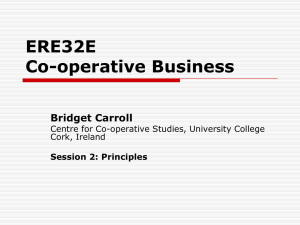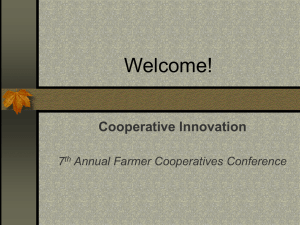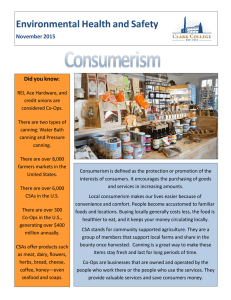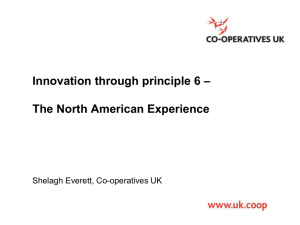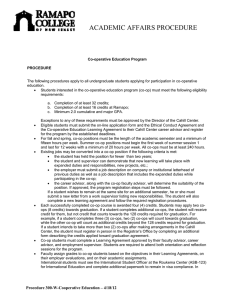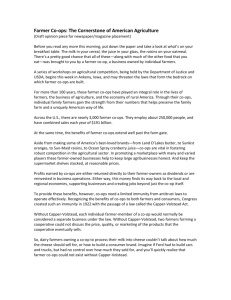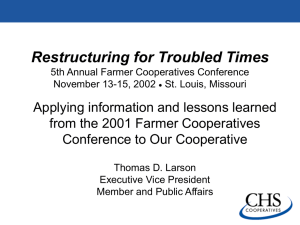Building a Co-operative Economy
advertisement
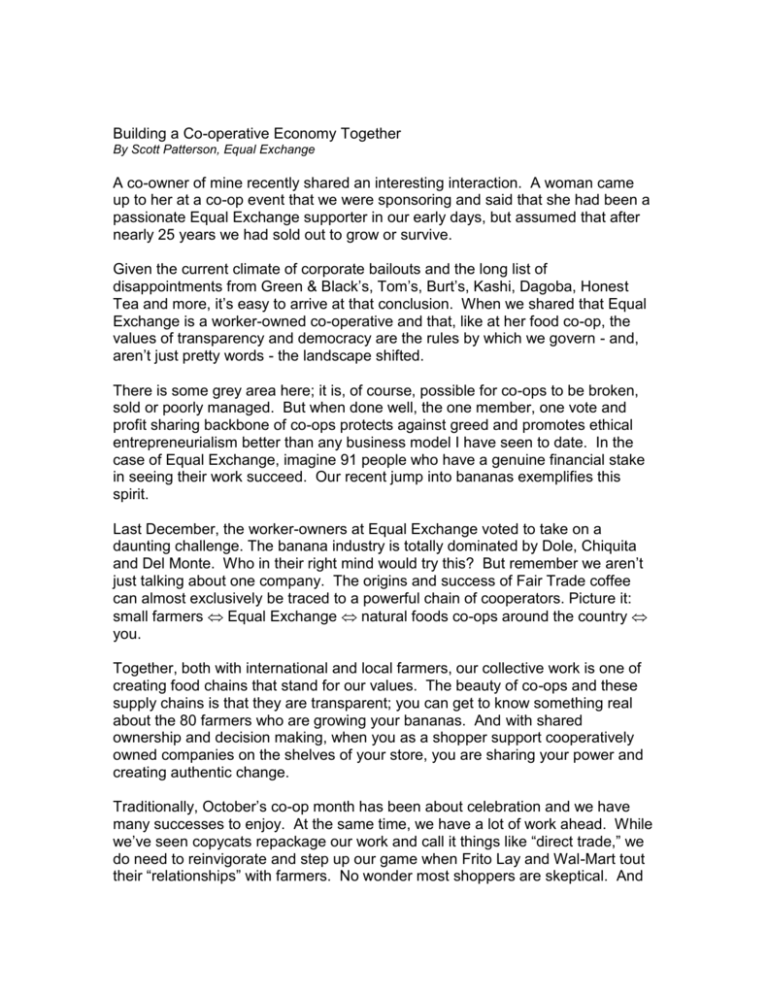
Building a Co-operative Economy Together By Scott Patterson, Equal Exchange A co-owner of mine recently shared an interesting interaction. A woman came up to her at a co-op event that we were sponsoring and said that she had been a passionate Equal Exchange supporter in our early days, but assumed that after nearly 25 years we had sold out to grow or survive. Given the current climate of corporate bailouts and the long list of disappointments from Green & Black’s, Tom’s, Burt’s, Kashi, Dagoba, Honest Tea and more, it’s easy to arrive at that conclusion. When we shared that Equal Exchange is a worker-owned co-operative and that, like at her food co-op, the values of transparency and democracy are the rules by which we govern - and, aren’t just pretty words - the landscape shifted. There is some grey area here; it is, of course, possible for co-ops to be broken, sold or poorly managed. But when done well, the one member, one vote and profit sharing backbone of co-ops protects against greed and promotes ethical entrepreneurialism better than any business model I have seen to date. In the case of Equal Exchange, imagine 91 people who have a genuine financial stake in seeing their work succeed. Our recent jump into bananas exemplifies this spirit. Last December, the worker-owners at Equal Exchange voted to take on a daunting challenge. The banana industry is totally dominated by Dole, Chiquita and Del Monte. Who in their right mind would try this? But remember we aren’t just talking about one company. The origins and success of Fair Trade coffee can almost exclusively be traced to a powerful chain of cooperators. Picture it: small farmers Equal Exchange natural foods co-ops around the country you. Together, both with international and local farmers, our collective work is one of creating food chains that stand for our values. The beauty of co-ops and these supply chains is that they are transparent; you can get to know something real about the 80 farmers who are growing your bananas. And with shared ownership and decision making, when you as a shopper support cooperatively owned companies on the shelves of your store, you are sharing your power and creating authentic change. Traditionally, October’s co-op month has been about celebration and we have many successes to enjoy. At the same time, we have a lot of work ahead. While we’ve seen copycats repackage our work and call it things like “direct trade,” we do need to reinvigorate and step up our game when Frito Lay and Wal-Mart tout their “relationships” with farmers. No wonder most shoppers are skeptical. And the risk is that when we can no longer distinguish between real efforts and marketing, we lose our ability to create true change. So, how do we move forward together? Well, for Equal Exchange’s part, in addition to jumping into the banana industry, we are committing to doing a better job of sharing both why small-scale farmer organizations are valuable and to letting you all get to know us. I suggest that natural foods co-ops embrace the debate about who owns the companies behind the products on your shelves, share this with your member-owners and do even more to actively promote cooperatively owned companies. In addition to local, organic and Fair Trade labeling, let’s identify and be proud of our business models. On the part of shoppers, hang in there! I know you are stretched for time and money but if you’ve read this far you must see value in building these connections! I ask for your amazing, continued loyalty to your coop and to Equal Exchange, and that you join us in holding our collective feet to the fire. Remember, your grocery store has been an innovator and is able to carry the products you want because it is a co-op! As you shop the aisles of your natural foods store and think about your routine purchases, why not keep asking for more companies that are cooperatively owned – and in this way remove the incentive for companies to sell out.
